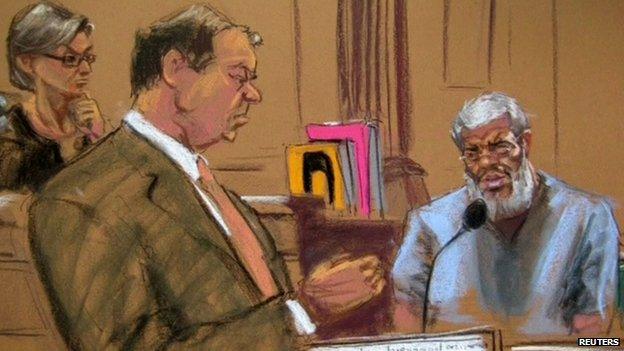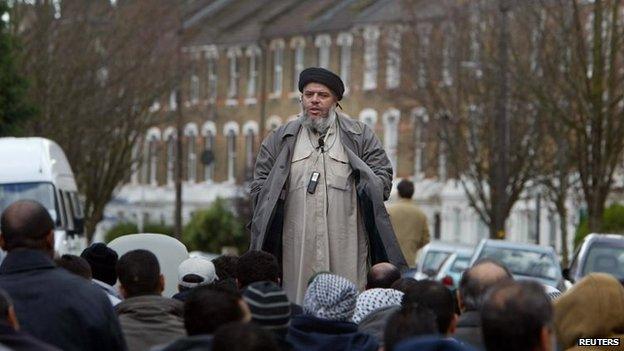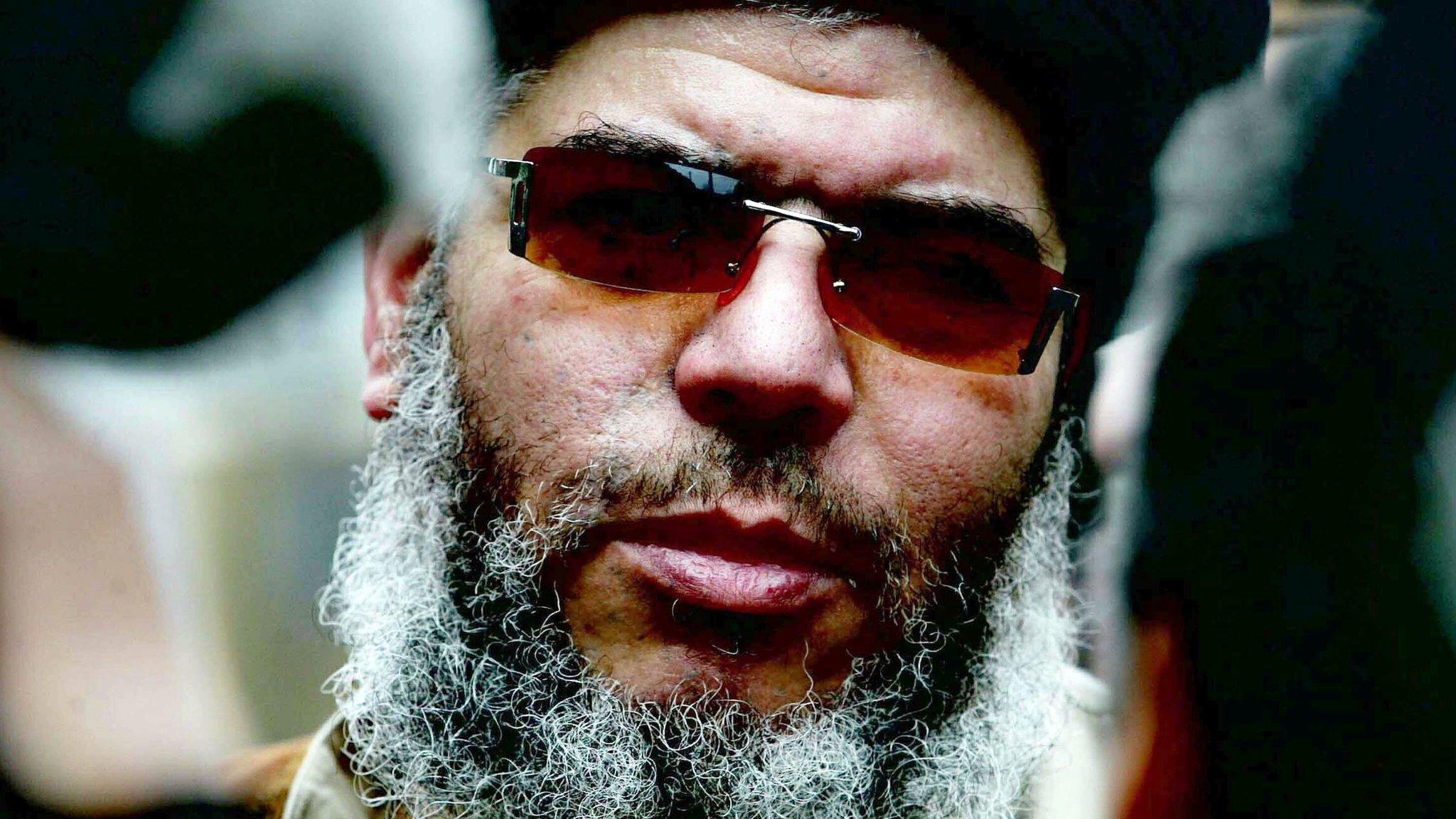Abu Hamza was 'mouthpiece' for 1998 Yemen kidnappings group
- Published

Radical Muslim cleric Abu Hamza al-Masri has denied being involved in the 1998 abduction of 16 Western tourists in Yemen, telling a jury he acted as "a mouthpiece" for the kidnap group.
Giving evidence for a third day in New York, Abu Hamza said he had provided the kidnappers with a satellite phone but said he had not known of the plot.
Abu Hamza, 56, likened himself to Sinn Féin leader Gerry Adams.
He denies 11 kidnapping and terror counts, including the 1998 abductions.
The Egyptian-born preacher was asked about his alleged involvement in the December 1998 abduction of 12 Britons, two Americans and two Australians in southern Yemen.
Four of the tourists were killed by the captors.
Abu Hamza said members of the Islamist group that carried out the kidnappings had contacted him through an Egyptian living in London, asking him to be their spokesman.
He said the group, which wanted to overthrow the Yemen government, had contacted him before carrying out the plot.
Three calls
The radical preacher, who became known in the UK for preaching violent messages at the Finsbury Park mosque in London after 9/11, said he had considered theirs to be "a good cause".
He told the jury he had provided a satellite phone to them but answered "no" when asked if he had known the abductions were being planned.
He said: "Like Gerry Adams, of the IRA, you can't afford to do anything that is not legal and transparent."
"Innocent people are not to be touched," Abu Hamza told the court, adding: "You can see this in my preaching."
Abu Hamza told the jury he had felt "betrayed" by the group's actions.

Abu Hamza used to address supporters in Finsbury Park, north London
The court heard phone record details, which prosecutors said showed three calls to Abu Hamza on the day of the kidnappings.
Two calls - which Abu Hamza did not answer - were recorded before the abductions and one call came three hours after the hostages were taken, which he did answer.
Abu Hamza said he had spoken to the kidnappers and said he had recommended that they allowed the hostages to phone their embassies and families.
He offered to travel to Yemen - which he told the jury his contacts had refused - and then prepared a statement to put pressure on the Yemeni government.
"I tried to raise the alarm," Abu Hamza said, explaining he had sent the statement to as many newspapers as possible.
The next morning he paid for £500 of credit for the satellite phone to allow the hostages to contact their families.
US prosecutors have also accused him of dispatching two men to Oregon to set up a jihadist training camp and sending followers and money to Afghanistan to help al Qaeda and the Taliban.
Abu Hamza, who was extradited to the US in 2012, denies the charges.
The trial continues.
- Published9 January 2015
